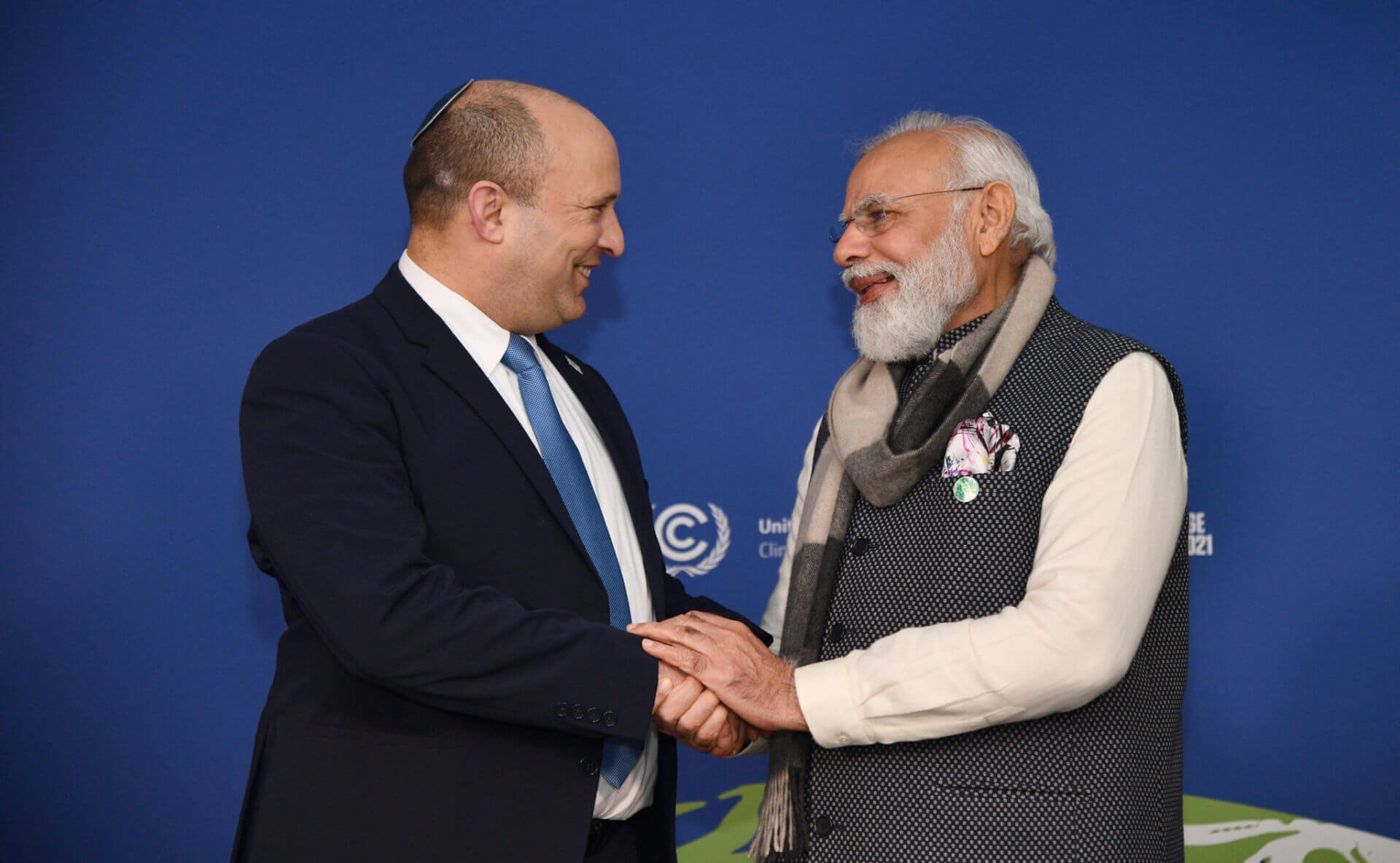South Asia
The Taliban banned the use of foreign currencies across Afghanistan, restricting the use of the popularly circulated American Dollar. It is predicted that this will further cripple the country’s already fragile economy. [Al Jazeera]
A series of blasts, followed by gunfire, attacked a military hospital in Kabul resulting in at least seven deaths and several other injuries. While no group has publicly claimed responsibility for the incident, there were reports of several Islamic State fighters at the hospital, clashing with security personnel. [NBC News]
Central Asia and the Caucasus
Georgian opposition party United National Movement (ENM) has launched “permanent” protests demanding the release of jailed former President Mikheil Saakashvili. On Tuesday, ENM chief Nika Melia said the party would not end protests until “the truth prevails.” Saakashvili, who is a month into a hunger strike, was arrested by the police on October 1 for alleged abuse of power and corruption. [RFE/RL]
On Tuesday, Azerbaijan returned the remains of 11 soldiers killed during last year’s Nagorno-Karabakh war to Armenia. The transfer of the remains was overseen by Russian peacekeepers. [Armen Press]
East and Southeast Asia
Yahoo has stopped allowing its services to be accessible from mainland China due to “the increasingly challenging business and legal environment,” stressing that it “remains committed to the rights of our users and a free and open internet.” [AP]
Japanese Prime Minister Fumio Kishida has appointed Foreign Minister Toshimitsu Motegi to be the ruling party secretary-general. The influential position will put Motegi in charge of financing campaigns, helping to shape policy, and overseeing the party’s election-related activities. [Channel News Asia]
Europe
During the COP26 discussion on the “Green Grids Initiative,” India and the United Kingdom announced a plan to enhance connectivity between power grids across the world. They said that this would facilitate the transition to greener sources of energy. [Reuters]
Russia did not sign the pledge to limit methane emissions at COP26; more than 90 countries signed the agreement. Russia is the fourth-largest greenhouse gas emitter in the world along with India and China, who also did not sign the pledge. Russia did, however, join the pledge to end deforestation by 2030. The Russian economy is heavily dependent on oil and gas production, which make up the bulk of methane emissions. [The Moscow Times]
Latin America and the Caribbean
Uruguay this week reopened its borders to fully vaccinated travellers for the first time in nearly two years. The country has also purchased 500,000 doses of the Pfizer COVID-19 vaccines, of which some will be administered to foreigners who wish to receive a booster shot. [MercoPress]
At COP26 in Glasgow, the presidents of Costa Rica, Colombia, Panama, and Ecuador signed an agreement to create a ‘fishing-free corridor’ in the Pacific Ocean that reportedly “connect[s] Galapagos Islands in Ecuador with Colombia’s Malpelo Island and the Cocos and Coiba Islands in Costa Rican and Panamanian waters.” They hope it will protect migratory species, including sea turtles, tuna, squid, and hammerhead sharks. [Associated Press]
Middle East and North Africa (MENA)
On Tuesday, Israeli Prime Minister Naftali Bennett met with his Indian counterpart Narendra Modi on the sidelines of the United Nations climate conference in Glasgow, Scotland. Both leaders stressed the need to “work together” on innovation, technology, space, security, agriculture, food technologies, and climate change. [Israel Ministry of Foreign Affairs]
Lebanese Foreign Minister Abdallah Bou Habib said on Tuesday that Saudi Arabia is dictating terms by asking the country to reduce the role of the Iran-backed Hezbollah militants. “Hezbollah is a component of politics in Lebanon. It has a regional armed dimension, yes, but this is beyond what we can resolve,” he told Reuters, adding that the only way tensions can be resolved is if Riyadh agrees to a dialogue with the new Lebanese government. [Reuters]
North America
On Tuesday, Central Intelligence Agency (CIA) Director William Burns made a rare visit to Russia, with ties between the two countries at their lowest since the end of the Cold War. Burns made the visit at the request of United States President Joe Biden and will discuss “a range of issues in the bilateral relationship” with members of the Russian government. [The Voice of America]
United States Secretary of State Antony Blinken and his counterpart from the United Arab Emirates, Sheikh Abdullah bin Zayed Al Nahyan, discussed the ongoing situation in Lebanon and Syria on the margins of COP26 on Tuesday. They also spoke about the military coup in Sudan and the future of energy markets. [US Department of State]
Oceania
France’s Ambassador to Australia, Jean-Pierre Thebault, said on Wednesday that Australia’s “deceit” was “intentional” when it joined the AUKUS and abruptly cancelled the multi-billion deal with Paris to build a fleet of submarines. [The Straits Times]
Amidst rising COVID-19 infections and fresh lockdowns, New Zealand has ordered an additional 4.7 million doses of the Pfizer/BioNTech vaccine, COVID-19 Response Minister Chris Hipkins said. [RNZ]
Sub-Saharan Africa
Guinean junta leader Col. Mamady Doumbouya, who deposed President Alpha Condé on September 5, has retired roughly 1,000 soldiers. This follows the forced retirement of 44 generals and admirals on October 12 and perhaps demonstrates Doumbouya’s plan to completely overhaul the military in his image. [Africa News]
Speaking at COP26 in Glasgow, Malawian President Lazarus Chakwera once again took aim at wealthy, developed nations, saying they must honour their commitments to reach global net-zero emissions by financing developing countries’ climate action strategies. [Nyasa Times]

